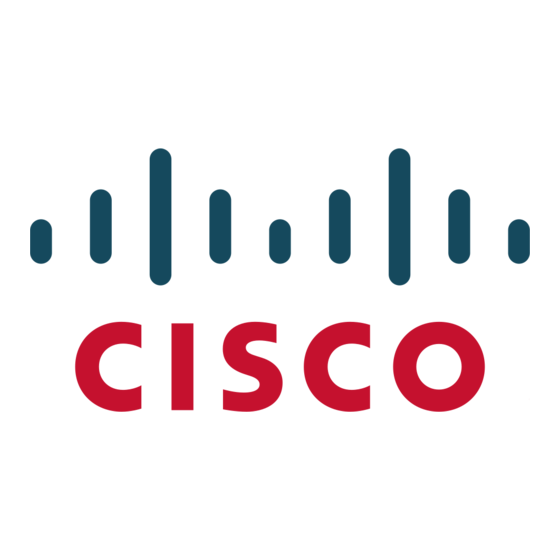Cisco Aironet 1140 Series Panduan Memulai - Halaman 11
Jelajahi secara online atau unduh pdf Panduan Memulai untuk Perangkat Keras Jaringan Cisco Aironet 1140 Series. Cisco Aironet 1140 Series 31 halaman. Autonomous access point
Juga untuk Cisco Aironet 1140 Series: Panduan Memulai (35 halaman), Panduan Konfigurasi (40 halaman), Lembar data (6 halaman), Panduan Memulai (37 halaman)

22/09/2019
•
SNMP Community—The SNMP Community setting identi es and sets attributes for the Simple
Network Management Protocol (SNMP) used to manage the network on which the access point
resides.
Read-Only—Access point allows only SNMP read access.
Read-Write—Access point allows read and write access.
Con guring the Radios
Your 1140 series access point includes two internal radios, which must be con gured
individually in Express Setup. Select the role, optimization setting, and extension capabilities
for Radio0 (802.11N
•
Role in Radio Network—Determines what function each radio in the access point performs in the
wireless network.
Access Point—Speci es that the unit operates as an access point connected to the
main Ethernet LAN network. In this mode, wireless clients associate to the access
point.
Repeater—Speci es that the unit operates as a repeater access point not
connected to Ethernet LAN. In this mode, wireless clients associate to the access
point.
Root Bridge—Speci es that the unit operates as a root bridge and connects directly
to the main Ethernet LAN. In this mode, the unit accepts associations from other
Cisco Aironet non-root bridges and wireless client devices.
Workgroup Bridge—Speci es that the unit operates as a workgroup bridge
connected to a small wired Ethernet LAN network through an Ethernet hub or
switch. The workgroup bridge must associate to a Cisco Aironet access point or
bridge.
Scanner—Speci es that the unit is con gured by a Cisco WLSE and operates as a
scanner and reports network tra c to the Cisco WLSE.
•
Optimize Radio Network For—Optimizes the access point radio performance in the wireless
network by adjusting data rates. This setting must match the setting on the clients.
Throughput—Maximizes data volume handled by the access point but might reduce
its range.
Range—Maximizes the access point range but might reduce throughput.
Default—The access point uses its default data rate settings for the radio selected.
Custom—The access point uses settings that you enter on the radio settings page.
Clicking Custom takes you to the radio settings page.
•
Aironet Extensions—By default, the access point uses Cisco Aironet 802.11 extensions to
detect the capabilities of Cisco Aironet client devices and to support features that require speci c
interaction between the access point and associated client devices. Aironet extensions must be
enabled to support features such as load balancing, Message Integrity Check (MIC), Temporal Key
Integrity Check (TKIP), Repeater Mode, and World Mode. Disabling Aironet Extensions disables the
features mentioned above, but it sometimes improves the ability of non-Cisco client devices to
associate to the access point.
Default Settings on the Express Setup Page
Table 1
lists the default settings on the Express Setup page.
Table 1 Express Setup Default Settings
https://www.cisco.com/c/en/us/td/docs/wireless/access_point/1140/autonomous/getting_started/guide/ap1140aut_getstart.html
Getting Started Guide: Cisco Aironet 1140 Series Autonomous Access Point - Cisco
2.4GHz
) and Radio1 (802.11N
5GHz
).
11/30
